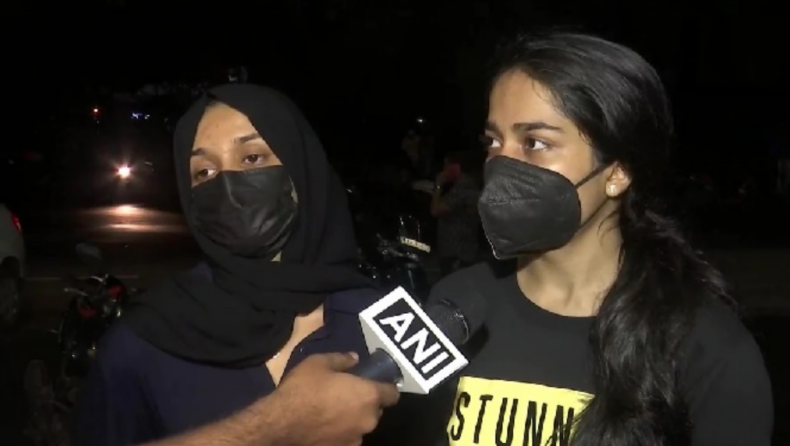Another judgment, Kerala High Court on Monday granted the permission to a lesbian couple to live in together. The permission was granted after the submission of a petition in a Habeas Corpus plea.

A Habeas Corpus plea is a writ used to challenge the unlawful detention or imprisonment of a person under Article 32 of the Constitution. It is meant to protect the fundamental rights of a person. The plea was submitted by an Aluva native, Adhila Nazreen. She was then reunited with her partner Fathima Noora.
Fatima Noor was allegedly abducted by her relatives last week, as the relationship came into light. Then after Adhila filed a police complaint that the lovers are being kept apart by the relatives for almost a week. Both the lovers are consented adults. Left their home on May 19 with the intention to live together. Both of them resided in an NGO in Kozhikode, working for LGBTIQ+ and other marginalised communities.
“On 19 May, I reached Kozhikode and met Fathima. For some days, we lived at a shelter home in Kozhikode, but the police intervened when relatives traced them at the place,” Adhila said in the petition. The Kerala High Court announced the judgement on Tuesday allowing the lesbian couple to live together.
There are also various posts on social media favouring the lesbian couple and that the love has won, finally defeating the narrow-minded society. There were reports that family of one of the girls were planning to shift her to Saudi. The swift decision of the Kerala High Court saved the lovers. The 2-judge bench favouring and allowed the Muslim lesbian couple, amid the ostracization, the couple faced.
It was stated by the couple that Adhila”s relatives took the couple to Aluva from Kozhikode and after a few days the relatives of Fatima also arrived and took her by force to Kozhikode, thus desperately separating the couple.
Before that, the Muslim couple was living in Kozhikode with the support of Vanaja Collective, a Kozhikode-based NGO.
Now let’s concern upon that what is LGBTQ community. It is short form where the first letter is L stands for lesbian that is a woman who is sexually attracted to other women, the second letter that is G which stands for Gay, a man who is sexually attracted towards other men. The third letter B stand for bi-sexual which means a person who has both male and female organs all is sexually attracted to both men or women and The Fourth letter T stands for transgender, and the last one is Q which stands for queer for those who are questioning their sexual orientation and gender identity. Section 377 IPC, grants the LGBTQ community to live with dignity, respect, and freedom as normal like other gender lives in a society. They also have all the educational rights and they are too their partners and live together.
Moreover, Article 21 of the Indian Constitution grants the right and freedom of choice to either marry or have an live-in relation, to an individual on one’s own choice as an adult. The court expresses that even live in relationships are regarded as an immoral by the society, the person has the right to live in 11 with his or her consent and that it is not I an offence. And as these rights are granted to the citizen of the country, and the LGBTQ community members are also the citizens, they also have the right to enjoy this fundamental right and protect their decisions.
The Indian society has no social acceptance towards live in relationships and the homosexuality orientation. So, the court helped the lovers to sustain their relation amid all the problems. It has to be thought off that no one is responsible for their sexual orientation and the society is no one to judge or to control their decisions. They are adults and have the right to live their lives as per their own choice.
The Muslim lesbian couple is stating that they are receiving threats from their relatives. But the swift decision of the court was so positive and minded as the couple was not at all, at fault, so why should they suffer being apart.












